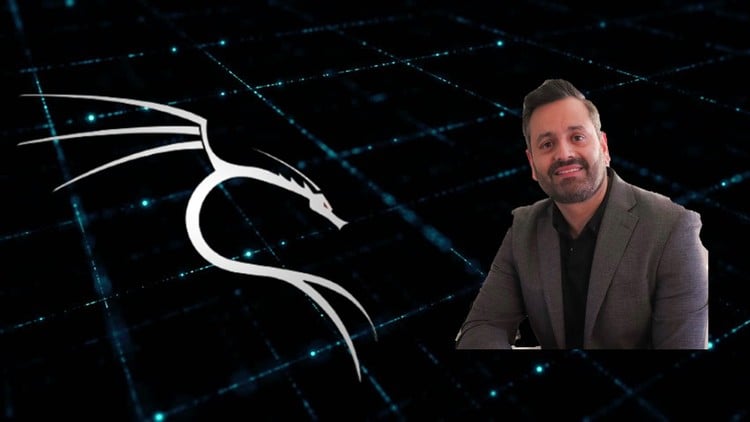
Practical Linux Training for Ethical Hackers
⏱️ Length: 4.4 total hours
👥 346 students
Add-On Information:
Note➛ Make sure your 𝐔𝐝𝐞𝐦𝐲 cart has only this course you're going to enroll it now, Remove all other courses from the 𝐔𝐝𝐞𝐦𝐲 cart before Enrolling!
-
Course Overview
- This intensive course deeply explores the critical intersection of Linux and Artificial Intelligence, specifically for aspiring ethical hackers. It equips you with a robust understanding of how foundational Linux knowledge converges with cutting-edge AI capabilities to fortify digital defenses and conduct sophisticated penetration tests. You’ll master the strategic application of intelligent systems to identify vulnerabilities, predict threats, and automate security tasks within complex network infrastructures.
- The curriculum fosters a proactive security mindset, advancing learners from basic Linux operations to advanced cybersecurity practices. You’ll learn to navigate the ethical hacking landscape while leveraging AI for enhanced threat intelligence, anomaly detection, and incident response, becoming a formidable asset. This course bridges traditional hacking methodologies with future-proof AI-driven security paradigms.
- Prepare to unravel the complexities of secure system administration, network reconnaissance, and data integrity using powerful open-source tools on Linux. Integrating practical exercises simulating real-world security challenges, this program builds a unique skill set combining operational mastery of Linux with the analytical power of AI, providing a distinct advantage for cybersecurity careers.
-
Requirements / Prerequisites
- Fundamental Computer Literacy: Basic understanding of computer operations, file management, and navigating a graphical user interface (GUI).
- Stable Internet Connection: Essential for downloading software, virtual machine (VM) images, and accessing course materials.
- Adequate PC Resources: A modern 64-bit computer with at least 8GB RAM (16GB recommended), 50GB free disk space, and virtualization enabled in BIOS (Intel VT-x or AMD-V).
- Enthusiasm for Learning & Problem Solving: Genuine interest in cybersecurity and a proactive approach to technical challenges. No prior Linux or AI experience is required.
-
Skills Covered / Tools Used
- Advanced Linux System Operations: Master Linux beyond basic commands, including robust process management, cron job scheduling, advanced shell scripting (Bash, Python), and securing server configurations against various attack vectors.
- Professional Virtualization & Lab Setup: Gain expertise in leveraging VirtualBox to create secure, isolated, and scalable testing environments. This includes advanced network configurations, snapshot management, and multi-OS lab deployments for complex attack scenarios.
- AI for Proactive Security Automation: Explore practical applications of machine learning to automate security tasks. Develop scripts for intelligent threat hunting, automate vulnerability assessments, and build basic predictive models for anomaly detection within Linux environments.
- Enhanced Threat Intelligence via AI: Learn to gather, process, and analyze vast security datasets using AI algorithms to identify emerging threats. Integrate open-source intelligence (OSINT) with AI techniques for comprehensive threat landscape views and predictive insights.
- Linux & AI-Powered Incident Response: Develop critical skills in responding to security incidents by employing Linux utilities for forensic data collection and applying AI models for rapid analysis of Indicators of Compromise (IOCs), root cause identification, and damage assessment.
- Secure System Development & Auditing Principles: Understand and implement security best practices in system configuration, focusing on least privilege, robust access controls, and regular auditing using both manual Linux tools and AI-enhanced monitoring solutions.
- Key Tools & Technologies: Beyond core systems (Kali, CentOS, VirtualBox), engage with specialized open-source tools. This includes network analysis utilities (e.g., Wireshark, tcpdump), security scanners (e.g., Nmap, Metasploit frameworks – conceptually), log analysis platforms (e.g., basic ELK stack principles or local alternatives), and Python libraries for AI/ML (e.g., Scikit-learn, Pandas) for practical scripting.
-
Benefits / Outcomes
- Highly Sought-After Skill Set: Acquire a unique, powerful combination of deep Linux operational expertise and practical AI application in cybersecurity, significantly enhancing marketability.
- Accelerated Career Growth: Be prepared for entry to mid-level roles like Security Analyst, Penetration Tester, Incident Responder, or AI Security Engineer, gaining a distinct advantage in a competitive field.
- Robust Practical Proficiency: Build confidence through immersive, hands-on labs and project-based learning that simulate real-world ethical hacking and security scenarios.
- Foundation for Advanced Certifications: Establish a strong knowledge base for pursuing industry-recognized certifications like CompTIA Linux+, LPI, CEH, or specialized AI/ML security credentials.
- Intelligent Ethical Hacking: Gain the ability to leverage AI for more efficient reconnaissance, sophisticated threat detection, and advanced security analysis, elevating your ethical hacking capabilities.
-
PROS
- Innovative AI Integration: Uniquely blends ethical hacking with cutting-edge AI methodologies.
- Strong Practical Focus: Emphasizes hands-on labs and real-world application.
- Career Advancement: Directly targets in-demand cybersecurity roles.
- In-depth Linux Knowledge: Covers advanced system administration for security.
- Beginner-Friendly: Accessible without prior Linux or AI experience.
-
CONS
- Concise Coverage of Advanced Topics: Given its 4.4-hour duration, some advanced AI or penetration testing topics may be introduced conceptually rather than explored in exhaustive, deep technical detail, requiring further self-study.
Learning Tracks: English,IT & Software,Network & Security
Found It Free? Share It Fast!